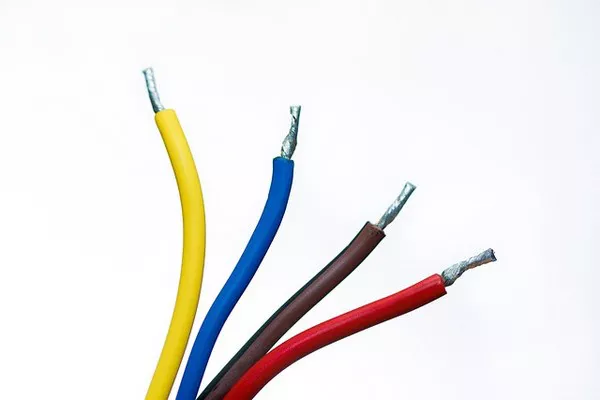Wire connectors are essential components in electrical systems, ensuring that connections between wires are secure and reliable. These connectors come in various types, each designed for specific applications and requirements. This article explores the different types of wire connectors, their applications, and considerations for choosing the right one for your project.
Types of Wire Connectors
Wire connectors can be broadly categorized based on their design, function, and application. Here, we’ll discuss some of the most common types:
Twist-On Wire Connectors
Twist-on wire connectors, often referred to as wire nuts, are among the most widely used connectors in residential and commercial wiring. They are designed to securely join two or more wires by twisting them together.
Features and Benefits
- Ease of Use: Twist-on connectors are easy to install. Simply strip the wires, twist them together, and screw on the connector.
- Versatility: They can connect a range of wire sizes and types, making them suitable for various applications.
- Cost-Effective: These connectors are inexpensive and widely available.
Application Scenarios
- Residential Wiring: Common in household electrical systems for connecting light fixtures, outlets, and switches.
- Commercial Projects: Used in larger-scale electrical systems where quick and reliable connections are needed.
Terminal Blocks
Terminal blocks are modular connectors that provide a convenient way to connect multiple wires in a circuit. They consist of a block with screw terminals for securing the wires.
Features and Benefits
- Modularity: Terminal blocks can be expanded or modified as needed, making them flexible for different applications.
- Secure Connections: Screws or clamps ensure a tight and secure connection, which is less likely to come loose.
- Organization: They help in organizing and managing wires neatly within an electrical panel.
Application Scenarios
- Industrial Control Panels: Used extensively in control panels to manage connections between various components.
- Electrical Distribution Systems: Facilitate the organization and distribution of power within large systems.
Plug-and-Socket Connectors
Plug-and-socket connectors, or plug connectors, consist of a plug and a corresponding socket. They are designed for quick and easy disconnection and reconnection.
Features and Benefits
- Convenience: Allows for quick connection and disconnection, which is useful for maintenance and equipment changes.
- Variety: Available in numerous configurations, including single and multi-pin designs, to suit different needs.
- Durability: Typically robust and designed to withstand repeated use.
Application Scenarios
- Consumer Electronics: Commonly used in appliances and devices that require frequent unplugging and plugging.
- Automotive: Utilized in vehicles for connecting various electrical components.
Crimp Connectors
Crimp connectors are used to attach a connector to a wire by deforming the metal connector around the wire using a crimping tool. This creates a secure and reliable electrical connection.
Features and Benefits
- Reliability: Provides a strong and durable connection that is less prone to failure.
- Variety: Available in different types, including ring terminals, spade terminals, and bullet connectors.
- Low Profile: Often used in applications where space is limited.
Application Scenarios
- Automotive Wiring: Widely used in vehicle electrical systems due to their reliability and compactness.
- Industrial Applications: Suitable for machinery and equipment where space and vibration are concerns.
Choosing the Right Wire Connector
Selecting the appropriate wire connector involves considering several factors, including the type of wires, environmental conditions, and the application requirements.
Wire Size and Type
Different connectors are designed to accommodate specific wire sizes and types. For instance:
- Twist-On Connectors: Suitable for a range of wire sizes, but typically used for solid or stranded copper wires.
- Crimp Connectors: Available for various wire gauges and types, including insulated and non-insulated options.
Environmental Conditions
The environmental conditions in which the connector will be used can influence your choice:
- Moisture: For applications exposed to moisture, consider connectors with waterproof or moisture-resistant features.
- Temperature: High-temperature environments may require connectors designed to withstand extreme heat.
Mechanical Stress
If the connection will be subject to mechanical stress or vibration, choose connectors that provide a robust and secure connection:
- Terminal Blocks: Offer stability and organization for connections that may experience mechanical stress.
- Crimp Connectors: Known for their ability to withstand mechanical stress due to the crimped connection.
Installation and Maintenance
Proper installation and maintenance are crucial for ensuring the longevity and reliability of wire connectors.
Installation Best Practices
- Strip Wires Properly: Ensure that wires are stripped to the correct length and that no insulation is left exposed.
- Use the Right Tools: Utilize appropriate tools for crimping or twisting connectors to achieve a secure connection.
- Inspect Connections: Check connections for proper fit and tightness to prevent loose or unreliable connections.
Maintenance Tips
- Regular Inspection: Periodically inspect connectors for signs of wear or damage.
- Clean Connections: Keep connectors clean and free of corrosion or debris to maintain conductivity.
- Replace Worn Connectors: Replace any connectors that show signs of deterioration to ensure continued reliability.
Conclusion
Understanding the various types of wire connectors and their applications is essential for any electrical project. Whether you are working on residential wiring, commercial installations, or industrial systems, selecting the right connector ensures secure and reliable connections. By considering factors such as wire size, environmental conditions, and mechanical stress, and following best practices for installation and maintenance, you can achieve optimal performance and longevity for your electrical connections.

